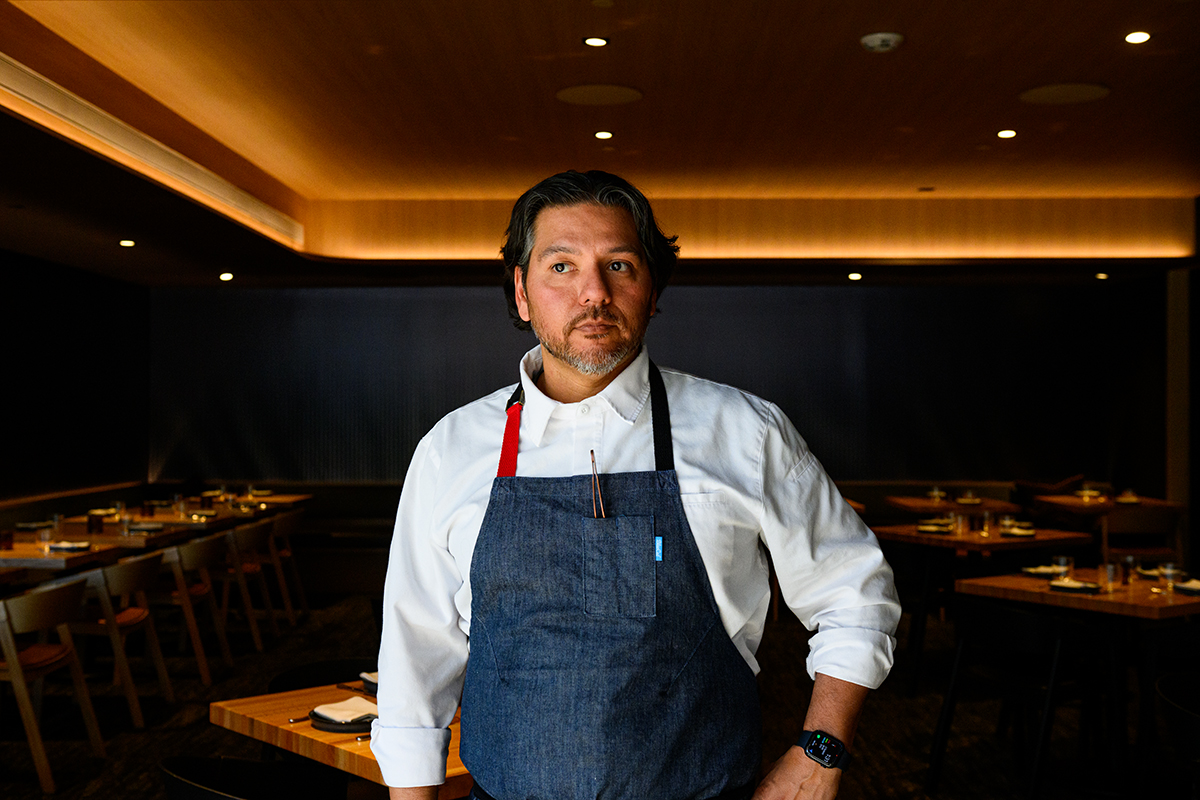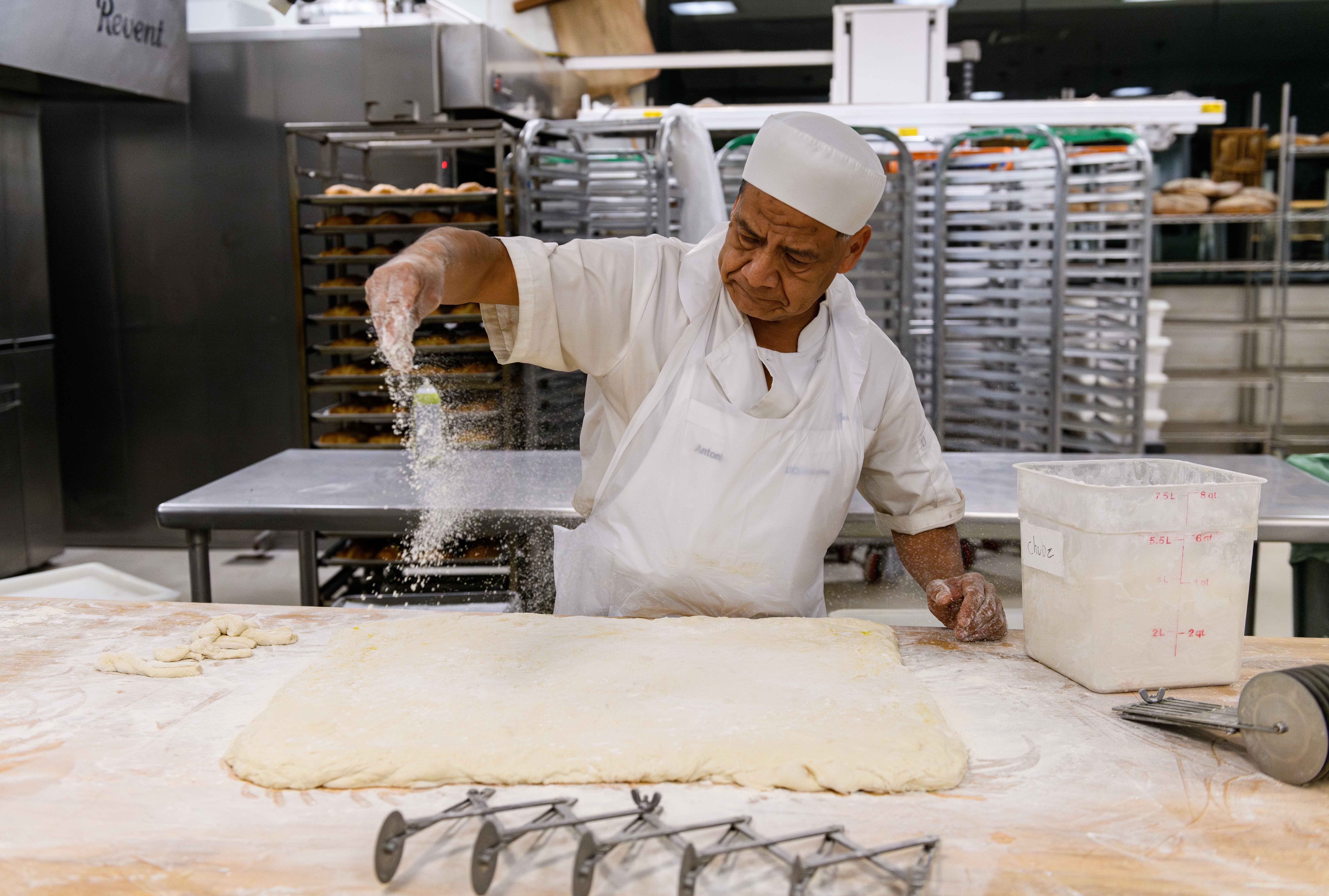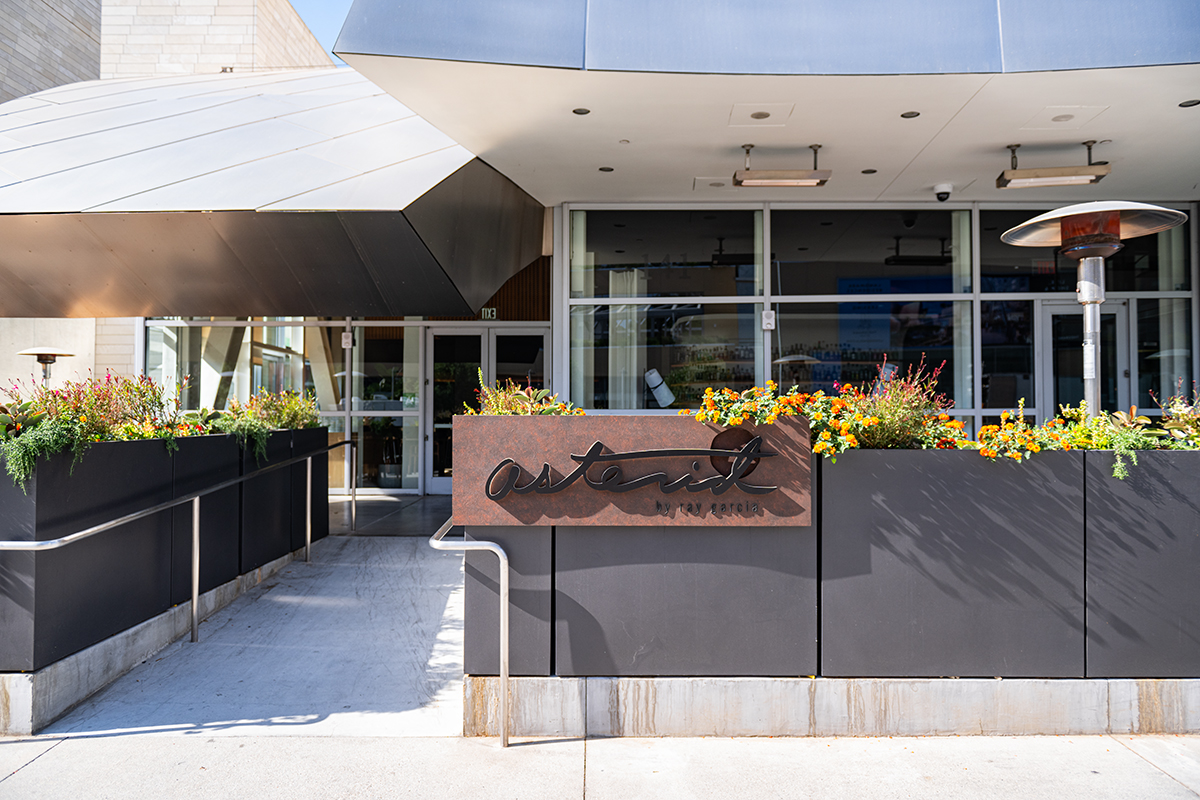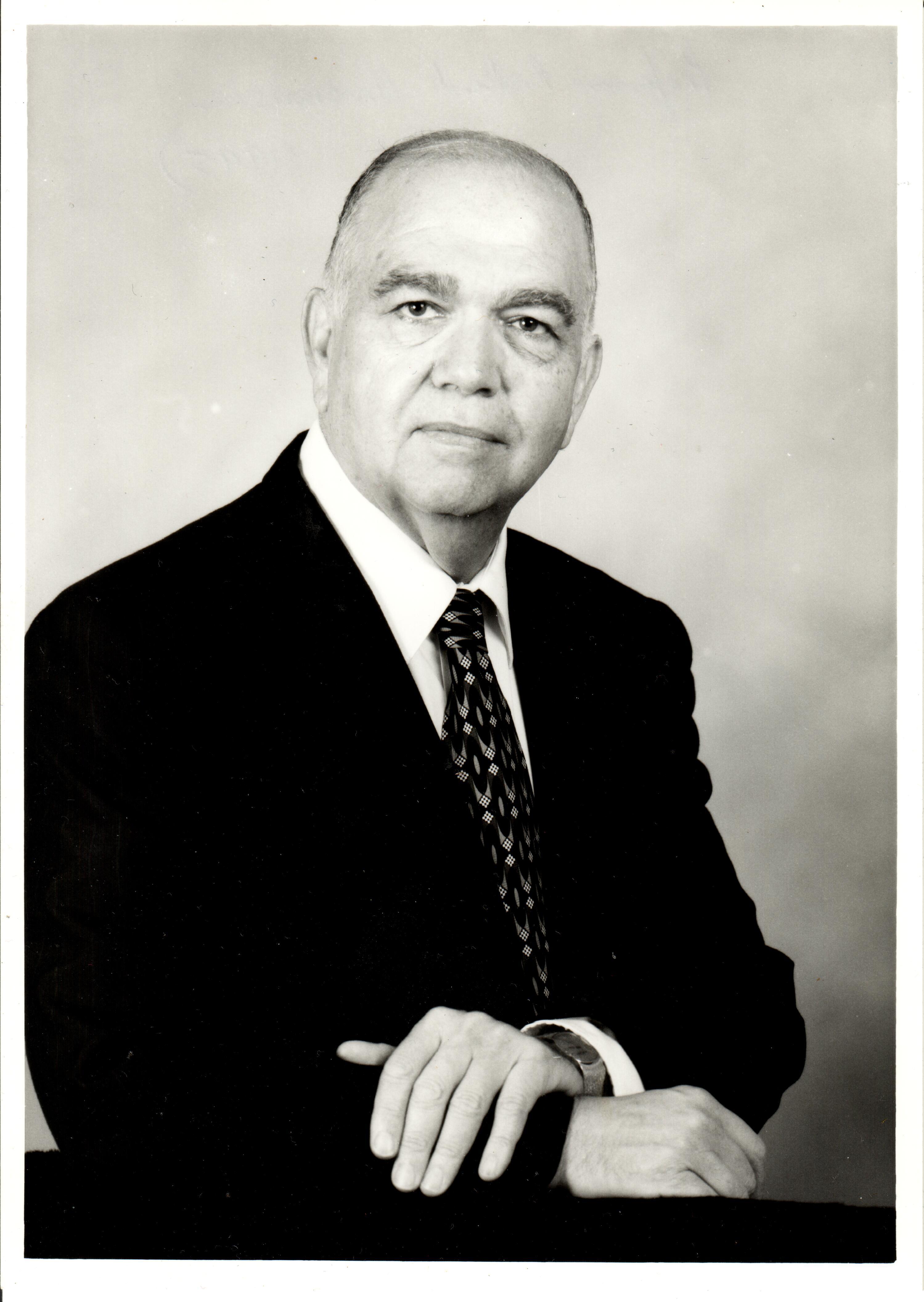Richard Ruskell’s Rise to UCLA’s Executive Pastry Chef
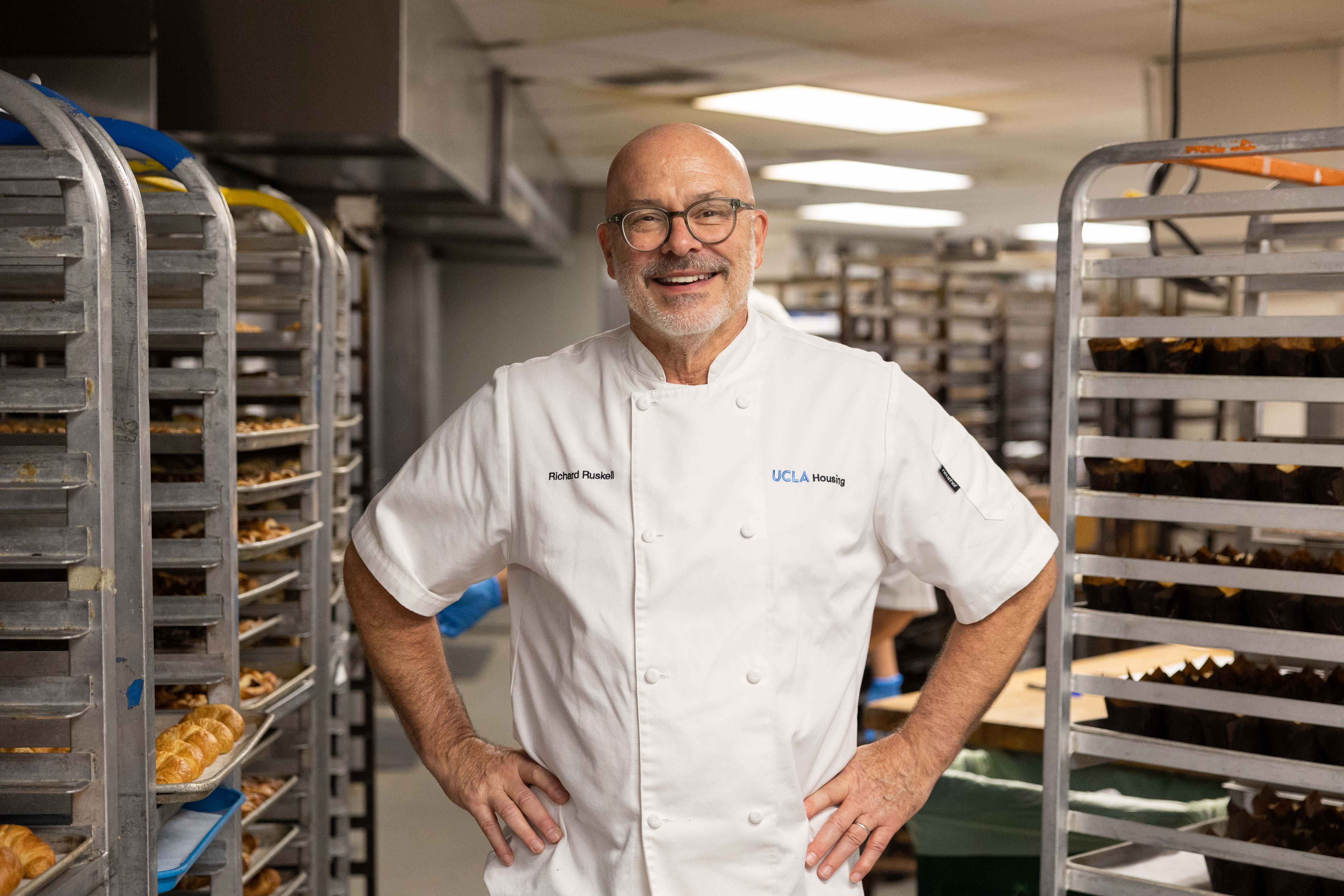
Executive pastry chef Richard Ruskell poses between racks of breads and desserts in the De Neve bakery. (Megan Cai/Daily Bruin senior staff)
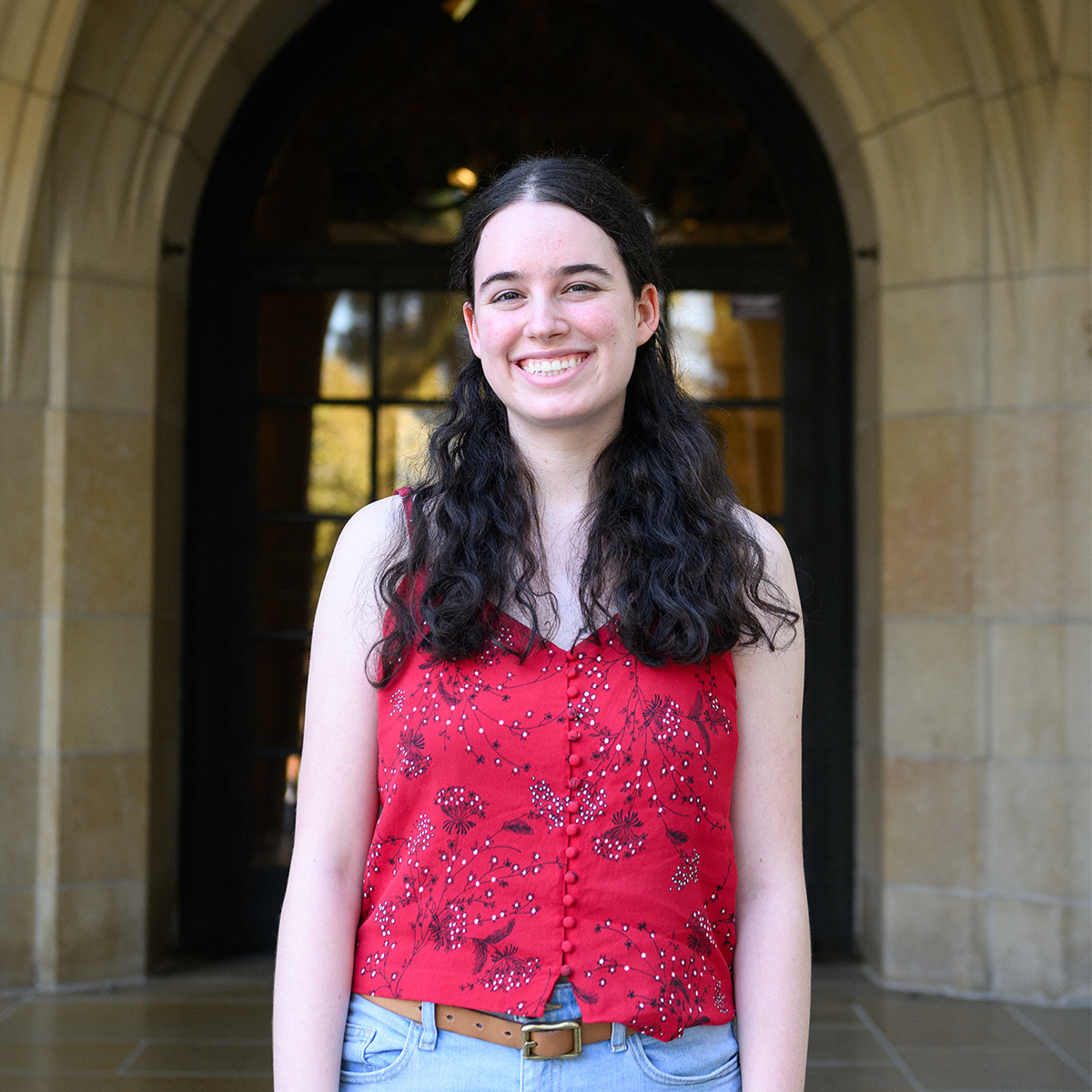
By Rachel Rothschild
Nov. 16, 2023 4:24 p.m.
Upscale hotel pastries or dining hall desserts? UCLA’s executive pastry chef Richard Ruskell sees no difference.
Before finding success as a Food Network contestant and judge, Ruskell graduated from the International Culinary Center, opened an award-winning pastry shop in Arizona, and taught at the New England Culinary Institute. Hoping to try institutional cooking on a much larger scale, Ruskell came to UCLA in 2014 because of its high ratings for food service and quality. Now, he uses the same recipes he developed for luxury hotels like the Montage to craft desserts and bread for residential students, the Luskin Conference Center, UCLA Catering, and during the pandemic, the UCLA hospitals.
Ruskell currently spends most of his days in the De Neve Commons Residential Restaurant, surrounded by giant mixers and industrial ovens. Upon arriving at work at 5:30 a.m., he oversees around 30 employees who are responsible for making 99% of the bread, from hamburger buns to pizza dough, and 95% of the desserts at UCLA. Besides daily food production, Ruskell also manages menu planning and food orders to ensure a constant stream of high-quality, low-cost baked goods for Bruins.
This fall, the Daily Bruin’s Rachel Rothschild spoke with Ruskell about his experience at UCLA and his journey to become an award-winning pastry chef.
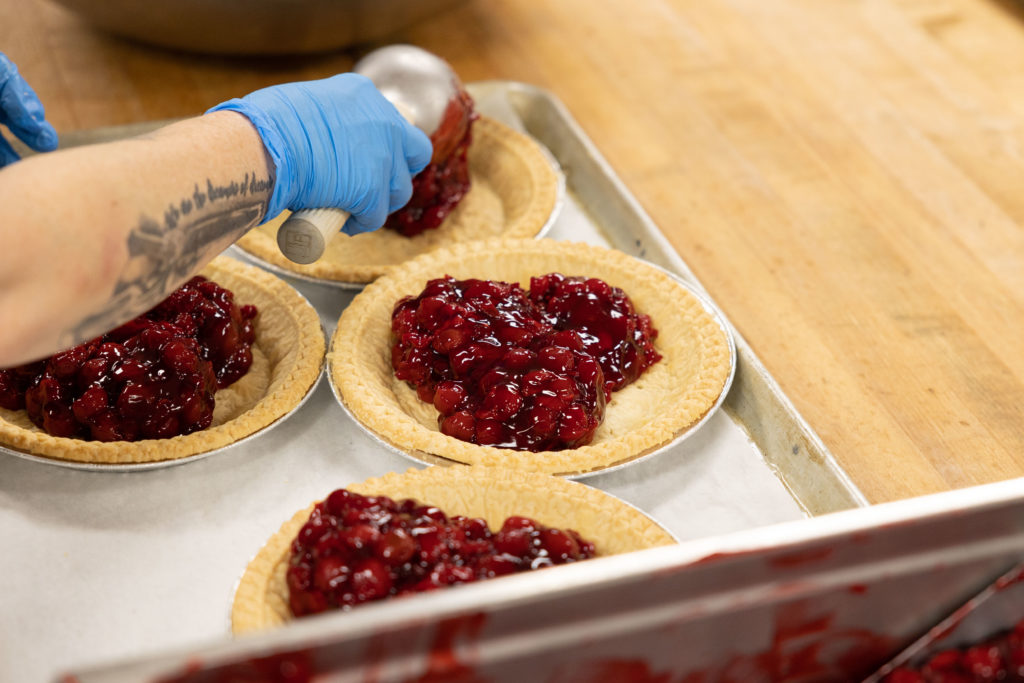
The following Q&A has been edited for length and clarity.
Daily Bruin: I’m sure a lot of UCLA students will be really interested in hearing more about the bakery department and what goes on behind the scenes. I definitely am. Throughout a week of working at UCLA, what are your daily tasks like?
Richard Ruskell: Every day is similar in that I come in, I check the boards to make sure everything went out on time, I talk to my shift supervisors to make sure that everybody is [on time]. Then I walk through the shop and the bakery and basically just look, and touch, and taste and see if everything is as it should be. I still don’t get tired of eating pastries. You know, I’ve been doing it for a long time. But I don’t get tired of it.
DB: UCLA frequently changes their menu – they have a great menu. Do you get to decide what desserts are served on which days, and what is that decision-making process like, and how do you find inspiration?
RR: It’s actually kind of easy. Take De Neve for instance. We have to have a vegan option, so we make fruit crisps with vegan streusel. That’s the vegan option all week. We have to have a chocolate item on the menu. We have to have a cake. We have to have a pie. We have to have a cookie. We have to have some sort of dessert, whether it’s a cupcake, flan – something that doesn’t really fall into the cake/pie/bar category. And you balance that out. So, you don’t want a day that has too much chocolate and no fruit, and then a day without any chocolate
DB: What is the most popular dessert at UCLA and then what dessert or bread do you enjoy making the most?
RR: Most popular would be cheesecake and carrot cake. My favorite thing to do is to work with chocolate. I don’t get a lot of that opportunity here because we’re not set up for that, like chocolate showpieces and things like that. We don’t have any need for that here. I like to work with chocolate, but my favorite desserts would be pies and crisps and fruit desserts.
DB: That makes sense. And so in the dining halls, I’m sure there’s a lot of extra food at the end of the day. What happens to that?
RR: It gets put over until the next day. We have a limit … we can serve it one day and we can serve it two days after that. After that, then we have to let it go. You’d be surprised how well we get it pared down to, not the exact amount, but pretty close, in that we don’t have a lot of waste.
DB: That sounds interesting. And so why do you think UCLA consistently earns high rankings and awards for their food? Also speaking to some of my friends even within the UC system, UCLA is really unique in the kind of food offerings that they have.
RR: I think first of all, we have an amazing variety of food that people can choose from, I think more than any other university. I know certainly in my time, we had no choice, it was ‘This is what you’re getting.’ And that’s it. Also, I think that our chefs really spend a lot of time making sure the quality is as good as we can possibly get it. And if it’s not, we try to figure out why. And maybe it’s just not selling because the guests don’t like it. Or it’s because there’s something off and we try to fix it, but we listen to our guests. You have to listen to them because they’re our customer. We are constantly R&D-ing new items, and so we try to keep it as fresh as we possibly can.
DB: Backing off of that, if students have feedback for the bakery department, how can they get in contact?
RR: The best way to do it is Txt n’ Tell. Otherwise they can certainly email me. I’ve had students email me, usually they’re looking for a recipe for something. I don’t think I’ve had any negative emails or anything. What does happen – not a lot, but it does happen – is that someone will get used to eating something in fall quarter but we take it off the menu for winter quarter and they’re like ‘You have to bring this back.’ Well, but that’s not really a winter desert. It’s more of a fall or a spring desert. So we have to kind of massage them and say it will be back, just not yet.
DB: Then for a little bit of background on you and your past cooking experiences, when and why did you first become interested in cooking and baking?
RR: I have my degree in theater, and I was an actor for a good long time. And then I got tired of being a starving artist. (Laughs) It’s okay when you’re in your 20s, after a while, it’s like ‘Okay, let’s get real here.’ I remember somebody told me once that if they could pay me to cook for them, they would. And so I thought well, I loved to cook. So then I decided to go to culinary school. At the time, you couldn’t specialize in any one field. It was a six month course, and after I got out of the school, I had to make the decision on what did I want to do with this degree. And I thought, ‘Well, I want to be the chef. I want to be the boss. I would love to open up my own place.’ I worked in as many places as I could, got as much information and techniques from other chefs. And then when I thought that I was ready to become the chef, I went for it.
DB: That’s awesome. What drew you to become a pastry chef specifically?
RR: While I was in culinary school, I’d liked doing pastry, but at the time I didn’t think that that’s what I would do. So I asked the pastry instructor at the school. I said, ‘Do I have what it takes to be a pastry chef?’ And he grabbed my hands and he said ‘You have cold hands. You won’t melt the chocolate and you’ll cool the sugar.’ So that’s all I needed to hear. And I thought ‘Okay, he thinks I can do this.’ I’m going to make sure I can.
DB: I read an article on the Food Network and it said that you appeared on many Food Network shows including “Food Network Challenge”, “Sugar Dome”, “Halloween Wars” and “Last Cake Standing” and have won almost every one that you’ve been on. So what do you think helped you compete successfully on those shows?
RR: When I first started doing it, I didn’t win. And I learned a lot just by watching the winners, and then I started winning. And when you start winning, then you can’t lose because you just can’t, it’s a knock to your ego. It’s a lot of fun to do the competitions. But it’s a lot of work, a lot. You can tell the people who practice, and the people who don’t. And the people who don’t practice, they don’t win. So practice, and also have a competitive edge.
I’m a competitive person. I never think I am, but then when I get into the thick of it, it’s either do it or don’t. And so we decided to do it. I had a great assistant, and I picked her because she could do the stuff that I couldn’t do. She was a great sculptor. She had an animation degree, so she could really draw. While she was carving and doing all that I was putting the cakes together and covering the cakes and getting them so that they wouldn’t fall over, because that happens.
DB: It’s always so sad when it happens.
RR: Oh, it happens. It happened to me once too. And I still won. So, I think to practice, practice, practice and have a competitive edge, that really helps.
DB: And I read also that you were a judge on Cake Wars. What was the process like to be selected as a judge? What was your experience like on the show and how is it different from your past experiences being a contestant?
RR: I remember after I started winning so many times, and getting more and more afraid of losing, I thought ‘Well, what’s the next step? The next step is to be a judge.’ So whenever they would call me to do a show, I would say ‘No, but I’ll be a judge.’ But they never listened to me. Until finally they did! And I’m glad that I was a judge because all of the other judges that I had had during the competitions, none of them had ever been on the show and actually competed. So I’m the only judge who had been in the contestant’s shoes, so I knew what they were going through. At times I was sympathetic, but primarily I was not. I was pretty firm and harsh with them, especially when you could tell when someone didn’t practice.
DB: What has been your favorite or most memorable order that you’ve made for somebody?
RR: I made the engagement cake for Kim Kardashian and her first husband – that lasted like five minutes. So I got to meet all the Kardashians, and they’re actually very nice people. And I’ve gotten to meet a good handful of celebrities and have made things for them. So that was always kind of fun.
DB: And so you also talked about this when you’re talking about your own journey, but do you have any advice for UCLA students planning to become pastry chefs?
RR: My advice would be to find a chef that you trust and that you admire, and then work with that chef as long as you can, and get as much out of him or her as you possibly can. And then don’t become a chef until it’s absolutely necessary for you to become a chef.
DB: Well, thank you so much for taking the time to speak with me today. It was great hearing about your journey and your role now at UCLA.



